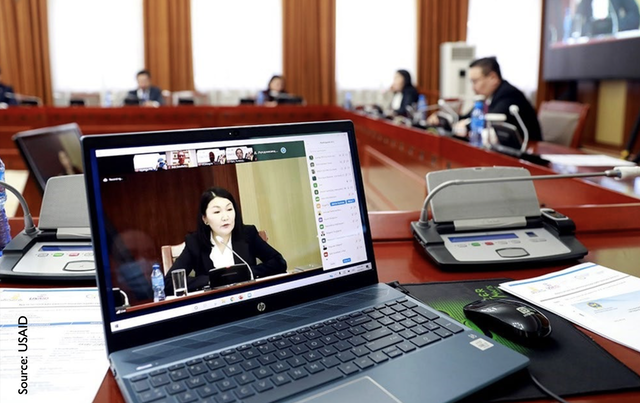
International donors invest in eGovernment solutions as they have the potential to bring many benefits to governments and citizens alike, including: providing better access to public services, increasing efficiency and transparency, and improving governance.
eGovernment Solutions
- Improved service delivery: eGovernment solutions can help to improve the delivery of public services by making them more accessible, efficient, and transparent. This can help to reduce corruption, increase accountability, and improve the overall quality of life for citizens.
- Increased efficiency: eGovernment solutions can automate many processes and reduce the need for manual labor, thus increasing efficiency and reducing the cost of government operations. This can free up resources that can be used for other development initiatives.
- Improved transparency: eGovernment solutions can increase transparency by making government processes and data more accessible to citizens. This can help to reduce corruption and increase accountability, and can also provide valuable information for decision-making.
- Better decision-making: eGovernment solutions can provide real-time data that can be used to inform decision-making, helping governments to allocate resources more effectively and respond more quickly to emerging challenges.
- Improved governance: eGovernment solutions can help to improve governance by making government processes more accessible, efficient, and transparent. This can increase citizen trust in government and improve the overall quality of governance.
- Enhanced citizen engagement: eGovernment solutions can also enhance citizen engagement by providing a platform for citizens to voice their opinions and concerns, and by making government data and processes more accessible to the public.
eGovernment solutions can help to reduce poverty, promote sustainable development, and create a more equitable society.
3 Reasons Why We Need Human Rights-Based Approach to Digital Media
Citizen engagement and participation through the use of digital media is a crucial area of work at this point in history and is now being recognized in regulatory...
5 Ways to Improve Data Use by Government Health Ministries
Despite the growing recognition that quality, timely, and accessible data are essential to every country’s ability to deliver vaccines effectively to its population,...
Apply Now: Paid Science & Technology Policy Fellowships in Washington DC
Are you a scientist or engineer? Do you want to learn first-hand about policymaking? To contribute your knowledge and analytical skills for better government services?...
5 Steps to Better Government Supply Chain Technology
Automated information systems are now widely used to manage the data that flows throughout a supply chain, from procuring a commodity, to manufacturing it, and,...
What To Do About Uganda’s Social Media and Mobile Money Taxes?
In July 2018, the Ugandan government instituted a 200 shilling, or about $0.05 per day excise duty on Over-the-Top (OTT) social media and instant messaging services...
DER Senegal: Innovative Government Funding for African Entrepreneurship
Most of the coverage of La Délégation Générale à l’Entreprenariat Rapide – “la DER” in Senegal fund has been in French, yet the Rapid Entrepreneurship...
The Evidence that Open Government Data Improves Developing Economies
In 2009, the United States launched the data.gov portal. Since then there has been a rapid increase in the systematic opening of government data around the world....
Which African Governments Spy on Technology Users the Most?
Governments can legally spy on their residents in many ways, most of them hidden from our purview. However, telecommunications companies, now often a target of...
Printed Receipts are an Underappreciated ICT4Gov Innovation
I often find that the overall transparency of a country can be seen in its retail transactions. The more that transactions are done using clearly marked fixed prices,...
Please RSVP Now: USAID Digital Development Forum Central America
June 23-24 – San Salvador – RSVP Now
Over the past decade, mobile Internet access has rapidly expanded across Central America to cover nearly 90% of...











